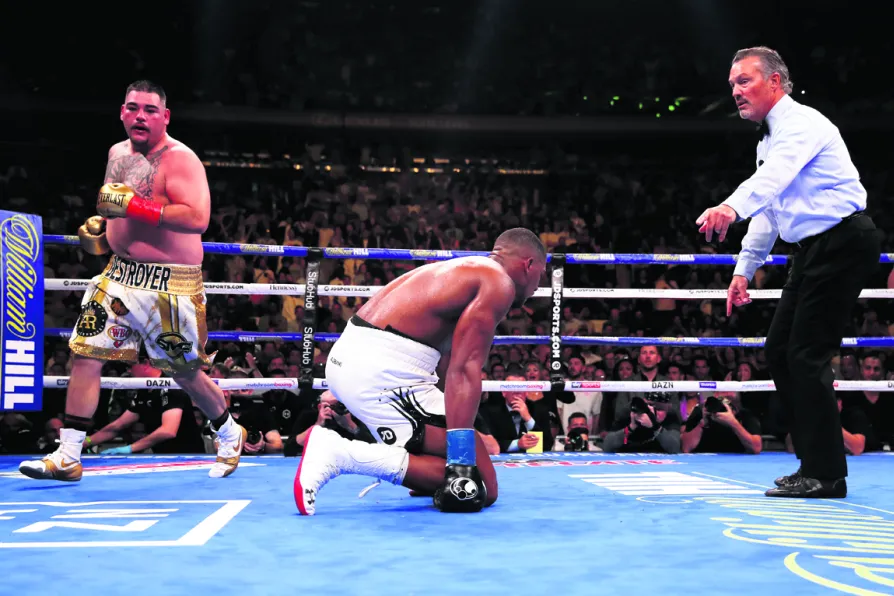

There is nothing more political than the tired mantra that sport and politics don’t mix. It is a mantra spouted by those who operate on the basis of see no evil and hear no evil, just so long as the money keeps rolling in, and is a recipe for acquiescence in the status quo no matter the injustice or oppression or brutality that such a status quo enshrines and involves.
Probably more than any other sport, boxing has been a consistent and constant barometer of prevailing social mores, political conditions and cultural values in any given space and time. The careers of Jack Johnson, Joe Louis and Muhammad Ali, to name three prominent examples, were saturated in the politics of their respective eras, as was Barry McGuigan’s on this side of the Atlantic, with the legacies they established and left behind all the more significant and enduring as a consequence.
Whether or not Anthony Joshua’s legacy is permanently trashed by agreeing to make Saudi Arabia the location of his highly anticipated rematch against Andy Ruiz Jr it’s still too soon to say. But it is undeniably tarnished by it. More importantly the reputation of heavyweight boxing, already damaged due to recent drug scandals, is tarnished by it.














